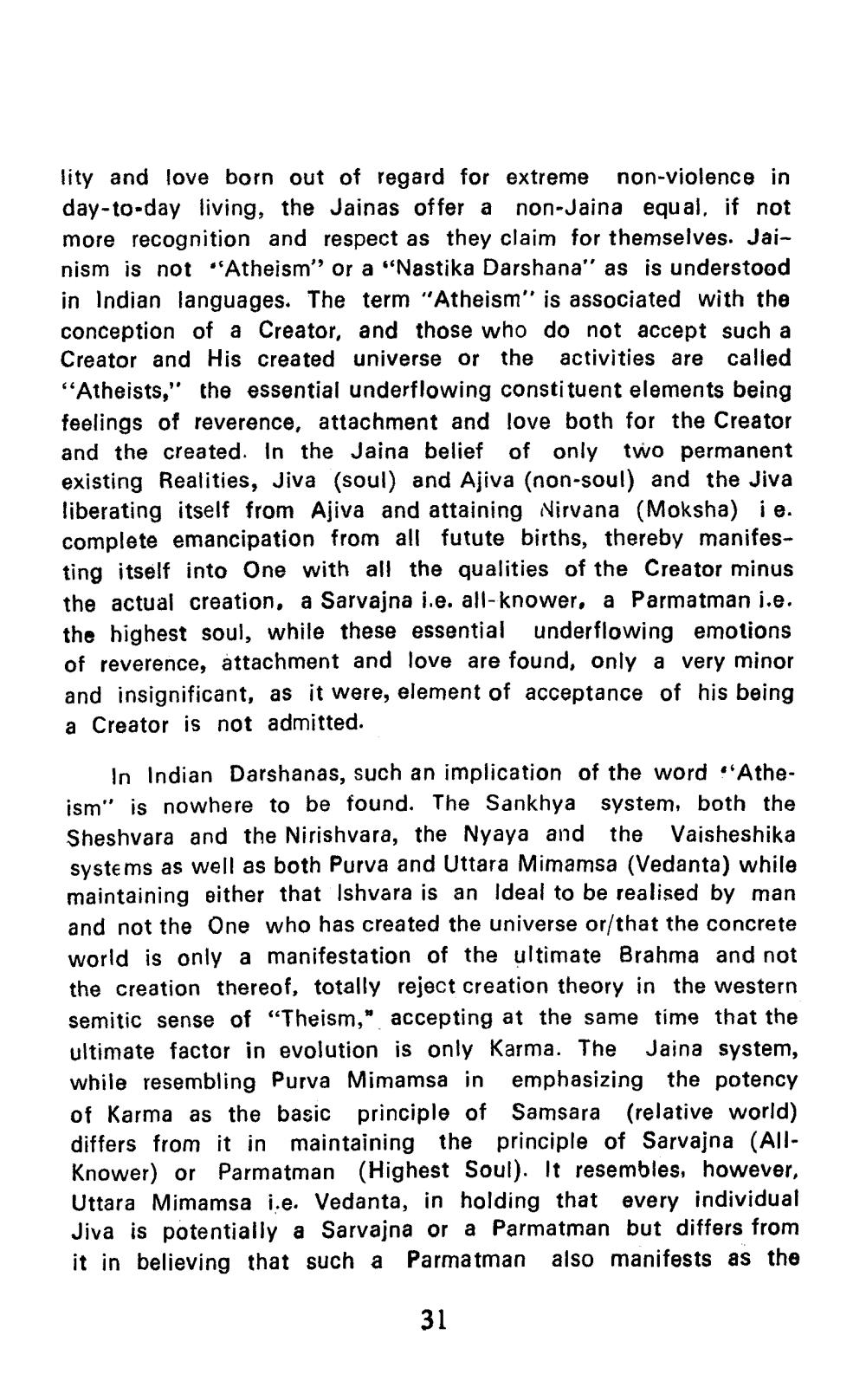________________
lity and love born out of regard for extreme non-violence in day-to-day living, the Jainas offer a non-Jaina equal, if not more recognition and respect as they claim for themselves. Jainism is not "Atheism” or a “Nastika Darshana" as is understood in Indian languages. The term "Atheism" is associated with the conception of a Creator, and those who do not accept such a Creator and His created universe or the activities are called "Atheists," the essential underflowing constituent elements being feelings of reverence, attachment and love both for the Creator and the created. In the Jaina belief of only two permanent existing Realities, Jiva (soul) and Ajiva (non-soul) and the Jiva liberating itself from Ajiva and attaining Nirvana (Moksha) ie. complete emancipation from all futute births, thereby manifesting itself into one with all the qualities of the Creator minus the actual creation, a Sarvajna i.e. all-knower, a Parmatman i.e. the highest soul, while these essential underflowing emotions of reverence, attachment and love are found, only a very minor and insignificant, as it were, element of acceptance of his being a Creator is not admitted.
In Indian Darshanas, such an implication of the word "Atheism" is nowhere to be found. The Sankhya system, both the Sheshvara and the Nirishvara, the Nyaya and the Vaisheshika systems as well as both Purva and Uttara Mimamsa (Vedanta) while maintaining either that Ishvara is an Ideal to be realised by man and not the one who has created the universe or/that the concrete world is only a manifestation of the ultimate Brahma and not the creation thereof, totally reject creation theory in the western semitic sense of “Theism," accepting at the same time ultimate factor in evolution is only Karma. The Jaina system, while resembling Purva Mimamsa in emphasizing the potency of Karma as the basic principle of Samsara (relative world) differs from it in maintaining the principle of Sarvajna (AllKnower) or Parmatman (Highest Soul). It resembles, however, Uttara Mimamsa i.e. Vedanta, in holding that every individual Jiva is potentially a Sarvajna or a Parmatman but differs from it in believing that such a Parmatman also manifests as the
31




